Microcrystalline cellulose (MCC) is a common ingredient in many supplements. Let's explore what MCC is, why it's used, and if it might be bad for you. We'll also look at some other options and talk about a supplement without cellulose for those who are worried about MCC. It's important to know about MCC in supplements so you can make good choices about your health.
Key Takeaways on MCC in Supplements
- MCC is a common filler in supplements
- May cause digestive issues for some people
- Allergic reactions are rare but possible
- Large amounts might affect nutrient absorption
- Quality supplements often avoid using MCC
- Can reduce overall supplement effectiveness
- May contain impurities or harmful substances
- Used by manufacturers to cut costs
What is Microcrystalline Cellulose?
Microcrystalline cellulose is a refined wood pulp derivative made from the cellulose found in plant cell walls. It's a white, odorless powder that's chemically inert and doesn't dissolve in water. Manufacturers create MCC by treating plant fibers, often from wood pulp, with mineral acids to break down the cellulose into tiny crystals. This process, known as acid hydrolysis, results in a purified, partially depolymerized cellulose that has unique properties making it valuable in various industries, particularly pharmaceuticals and food production.
MCC is widely used in the pharmaceutical and supplement industries for several reasons:
- It's a great binder, helping to hold ingredients together in tablets.
- It works as a filler, adding bulk to capsules when the active ingredient is small in quantity, and when manufacturers don't want to spend extra on including more active ingredients.
- MCC is cheap.
- It improves the flow of powders during manufacturing, which is essential for consistent tablet production and filling of capsules.
- MCC acts as a lubricant, reducing friction during the tablet compression process.
The popularity of MCC comes from its low cost, versatility, and acceptance by regulatory agencies like the FDA.
To understand how manufacturers use these cost-cutting ingredients across the industry, see our deep dive on the truth about flow agents and fillers in probiotics.
The supplements in our shop avoid using MCC due to potential concerns. This decision is based on a commitment to providing high-quality, pure supplements that prioritize optimal absorption and effectiveness.
The Dark Side of Microcrystalline Cellulose in Supplements
While MCC is generally considered safe, some people may experience side effects when consuming supplements containing this ingredient. Let's look at some potential issues in more detail:
Gastrointestinal Problems
Some individuals might experience tummy troubles after taking supplements with MCC. These can include:
- Bloating: You might feel overly full or your belly might look swollen.
- Gas: MCC can cause more flatulence as gut bacteria try to break it down.
- Constipation or Diarrhea: Since MCC is indigestible fiber, it can mess with your normal bathroom habits.
- Stomach Pain: You might feel cramping or discomfort.
- Nausea: Some people might feel queasy or have an upset stomach.
Allergic Reactions
Though rare, some people might be allergic to MCC. Signs of an allergic reaction could include:
- Skin rashes that are red, itchy, or swollen.
- Trouble breathing, which might include wheezing or shortness of breath.
- Swelling in the face, lips, or tongue.
- Anaphylaxis, a severe and potentially life-threatening allergic reaction.
If you notice any of these symptoms after taking a supplement with MCC, stop using it and talk to a doctor right away.
MCC isn't the only filler raising safety concerns. Titanium dioxide—banned in Europe since 2022—remains common in American supplements and has been shown to harm the same beneficial bacteria probiotics aim to support.
For a comprehensive look at cellulose sensitivity, including lesser-known symptoms and testing options, read our guide on MCC allergy symptoms and solutions.
For more information on maintaining a healthy gut, check out our comprehensive guide on probiotics and gut health.
Possible Weight Gain
Some studies suggest that eating a lot of cellulose might interfere with how your body absorbs nutrients and manages your weight. While MCC is often used in diet products because it makes you feel full without adding calories, too much of it might actually lead to weight gain. However, we need more research to be sure about this.
Impact on Nutrient Absorption
There's a bit of evidence that MCC might make it harder for your body to absorb certain nutrients, especially fat-soluble vitamins like A, D, E, and K. The fiber in MCC can bind to these vitamins, potentially making it harder for your body to use them.
This is one reason why multi-strain probiotics without MCC tend to deliver better results than filler-heavy alternatives.
The Hidden Costs of Cheap Fillers in Supplements
When supplement makers use MCC and other cheap fillers, they're often trying to save money. But this can come at a cost to the quality and effectiveness of the supplement. By filling capsules with stuff that doesn't really help you, they're reducing the overall value of the product.
Using low-quality or too many fillers can lead to some risks:
- The supplement might not work as well because there's less of the good stuff in it.
- You might have bad reactions, like the tummy troubles we talked about earlier.
- There's a chance that cheap fillers might contain impurities or things that could be harmful.
- The presence of fillers can interfere with the bioavailability of active ingredients.
- For individuals with sensitivities or allergies, the presence of undisclosed or poorly labeled fillers can pose significant health risks.
Learning how to read supplement labels for hidden fillers is essential for making informed choices. Beyond MCC, watch for other problematic additives like magnesium stearate and silica.
It's really important for supplement companies to be honest about what's in their products. As a consumer, you should be able to make informed choices based on clear labels that list all ingredients, including fillers and what the capsules are made of.
Alternatives to Microcrystalline Cellulose in Supplements
If you're worried about MCC in your supplements, there are other options out there. Some plant-based alternatives include:
- Rice Bran: This natural fiber can act as a filler and even has some nutritional benefits.
- Psyllium Husk: A type of fiber that can help with digestion.
- Acacia Fiber: Also known as gum arabic, this low-FODMAP prebiotic is especially helpful for sensitive stomachs and IBS.
- Organic Brown Rice Powder: This whole-grain option provides a natural, minimally processed filler.
- Coconut Flour: High in fiber and nutrients, coconut flour can serve as both a filler and a functional ingredient.
Another option is gelatin-based capsules, which are made from animal products. They dissolve quickly in your stomach and are often cheaper than some vegetarian options. However, they're not suitable for vegetarians or vegans.
Pullulan Capsules: A Superior Alternative
Pullulan capsules are a great choice for those looking to avoid MCC. Pullulan is a natural substance made by fermenting starch with a type of fungus. Here's why pullulan capsules are awesome:
- They're vegetarian and vegan-friendly.
- They're unlikely to cause allergic reactions.
- They protect the ingredients inside from oxygen, helping them last longer.
- They're better for the environment than some other types of capsules.
- Pullulan can even act as a prebiotic, feeding the good bacteria in your gut.
- For a detailed comparison of capsule materials, see our breakdown of Hypromellose (HPMC) vs Pullulan capsules for gut health.
- They dissolve quickly in the body, ensuring rapid release of the supplement's active ingredients.
- Pullulan capsules have excellent stability in various environmental conditions.
MicroBiome Restore: A Cellulose-Free Prebiotic and Probiotic Supplement
If you're looking for a high-quality supplement that doesn't use MCC, check out MicroBiome Restore™. This prebiotic and probiotic supplement is designed with your health in mind, offering a comprehensive approach to gut health without relying on potentially problematic fillers.
For a complete breakdown of every ingredient and the research behind it, see our comprehensive MicroBiome Restore guide.
MicroBiome Restore uses pullulan capsules instead of MCC or HPMC. This means:
- It's natural and safe, minimizing the risk of adverse reactions often associated with synthetic fillers.
- The capsules themselves can support good gut bacteria, contributing to the overall effectiveness of the probiotic supplement.
- It's suitable for people with allergies, as pullulan is hypoallergenic and well-tolerated by most individuals.
- There are no useless fillers - just the good stuff your body needs.
- The absence of MCC or other potentially problematic fillers means better absorption and utilization of the active ingredients.
MicroBiome Restore is designed to:
- Support digestive health by balancing your gut bacteria.
- Help your body absorb nutrients better.
- Reduce inflammation in your gut.
- Keep a healthy balance of good and bad bacteria in your digestive system.
- Potentially alleviate symptoms of digestive disorders like IBS, bloating, and constipation.
- Support overall immune function, as a significant portion of the immune system is located in the gut.
The diverse strain profile is key—research shows that multi-strain formulas outperform single-strain options for comprehensive gut support.
Conclusion: Making Informed Choices About Your Supplements
While microcrystalline cellulose is generally considered safe, it can cause issues for some people, especially when consumed in large amounts. As a smart consumer, it's important to know what's in your supplements and how those ingredients might affect you.
When choosing supplements, remember:
- Read the labels carefully and look for products with minimal fillers.
- Consider alternatives like pullulan capsules if you're concerned about MCC.
- See our guide to finding the best probiotic without microcrystalline cellulose.
- Quality is often more important than cost when it comes to your health.
- Products like MicroBiome Restore™ offer high-quality, cellulose-free options for those looking to support their gut health.
- Consider your individual health needs and any existing conditions when selecting supplements.
- Consult with a healthcare professional if you have concerns about supplement ingredients or their potential interactions with medications or health conditions.
By staying informed and choosing wisely, you can make the best decisions for your health and well-being. Remember, what you put into your body matters, so choose supplements that align with your health goals and values.
For those interested in exploring other high-quality supplements, check out our X-Cellerator Full Spectrum Trace Minerals, another product designed with your health in mind.
Remember, your gut health is crucial to your overall well-being. To learn more about how prebiotics, probiotics, and synbiotics work together to support your digestive system, read our informative article on Gut Health: Prebiotics, Probiotics, and Synbiotics.
References
- "Microcrystalline Cellulose" - ScienceDirect
- "Pharmaceutical Applications of Microcrystalline Cellulose" - ResearchGate DOI: 10.3109/03639045.2012.680819
- "FDA Inactive Ingredient Search for Approved Drug Products" - FDA
- "Dietary Fiber and Gastrointestinal Health" - National Center for Biotechnology Information DOI: 10.3390/nu3010075
- "Cellulose Allergy: A Rare, but Important, Cause of Contact Dermatitis" - Journal of the American Academy of Dermatology DOI: 10.1016/j.jaad.2017.10.018
- "Effects of Microcrystalline Cellulose on Body Weight" - National Center for Biotechnology Information DOI: 10.3390/nu11020362
- "Influence of Dietary Fiber on Nutrient Absorption" - National Center for Biotechnology Information DOI: 10.1038/ejcn.2014.201
- "Quality Control of Excipients in Pharmaceuticals" - Pharmaceutical Online
- "Acacia Fiber as a Prebiotic" - National Center for Biotechnology Information DOI: 10.3390/nu12103115
- "Pullulan: A Novel Molecule for Biomedical Applications" - National Center for Biotechnology Information DOI: 10.2174/1567201814666170719111345
- "Hypoallergenic Pullulan Capsules" - Capsugel
- "The Barrier Properties of Pullulan Capsules" - ResearchGate DOI: 10.1208/s12249-014-0206-7
- "Environmental Impact of Pullulan Capsules" - ResearchGate DOI: 10.1016/j.jclepro.2018.06.006
- "Prebiotic Potential of Pullulan" - National Center for Biotechnology Information DOI: 10.1016/j.ijbiomac.2015.11.050

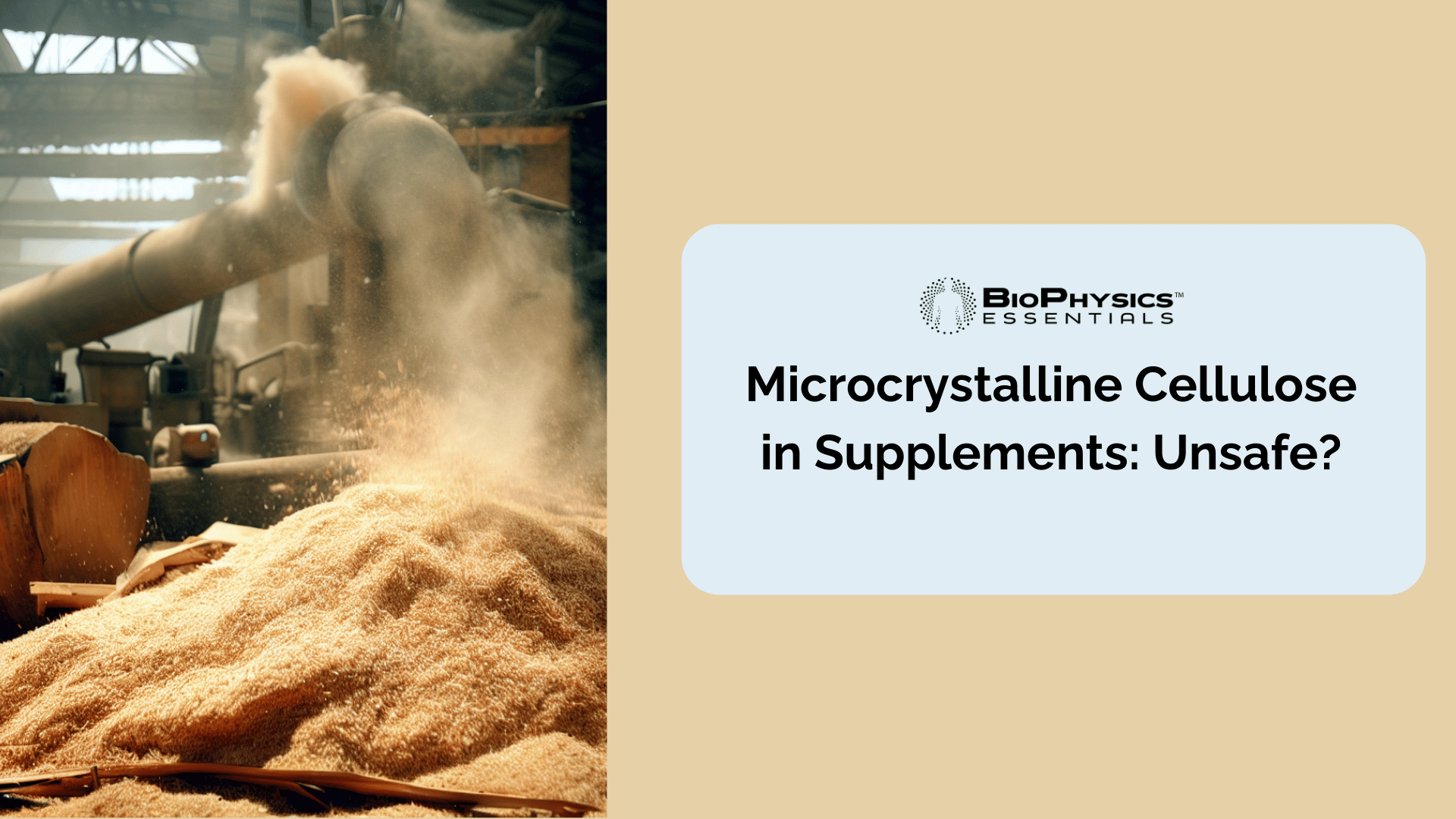



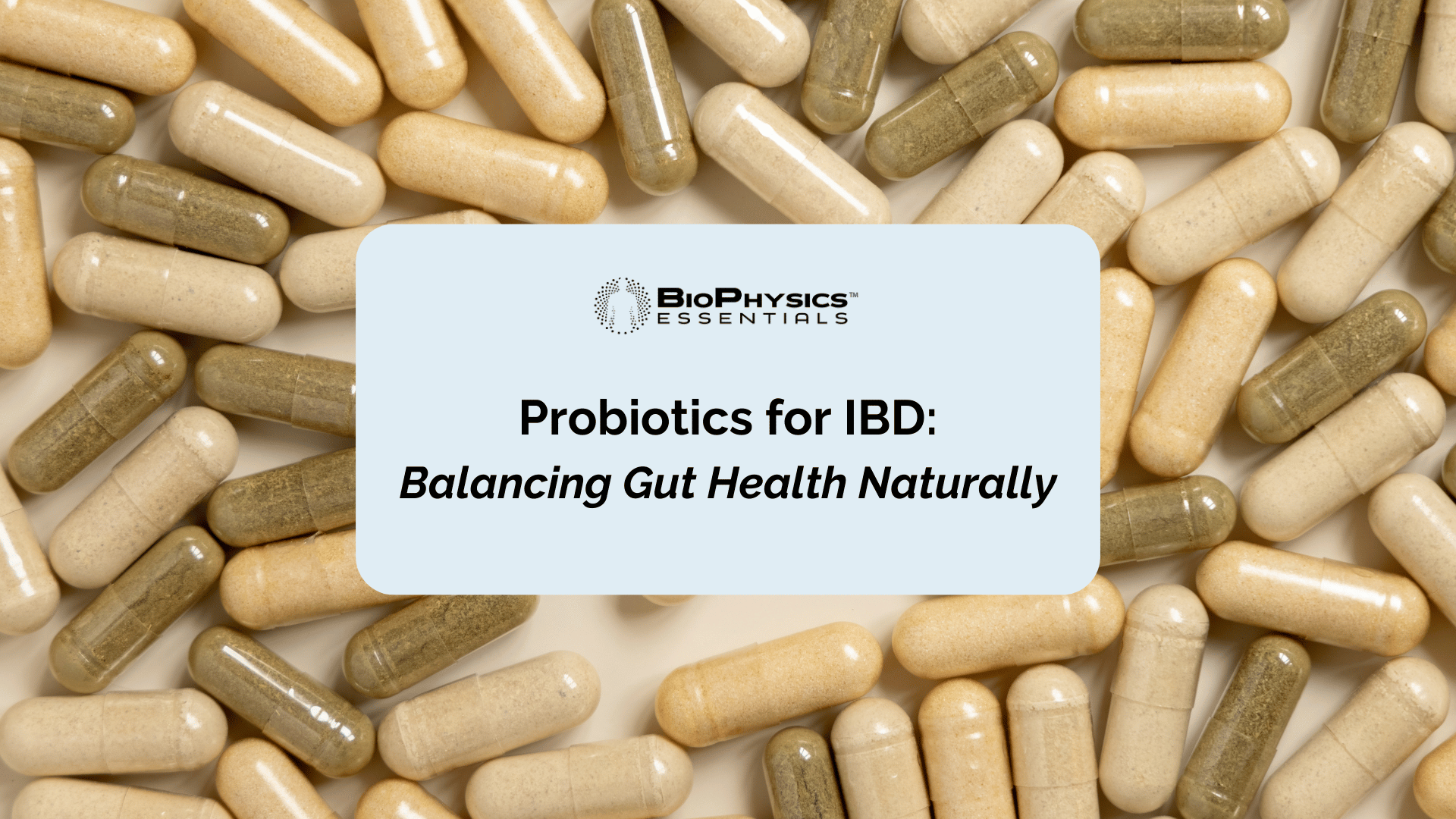
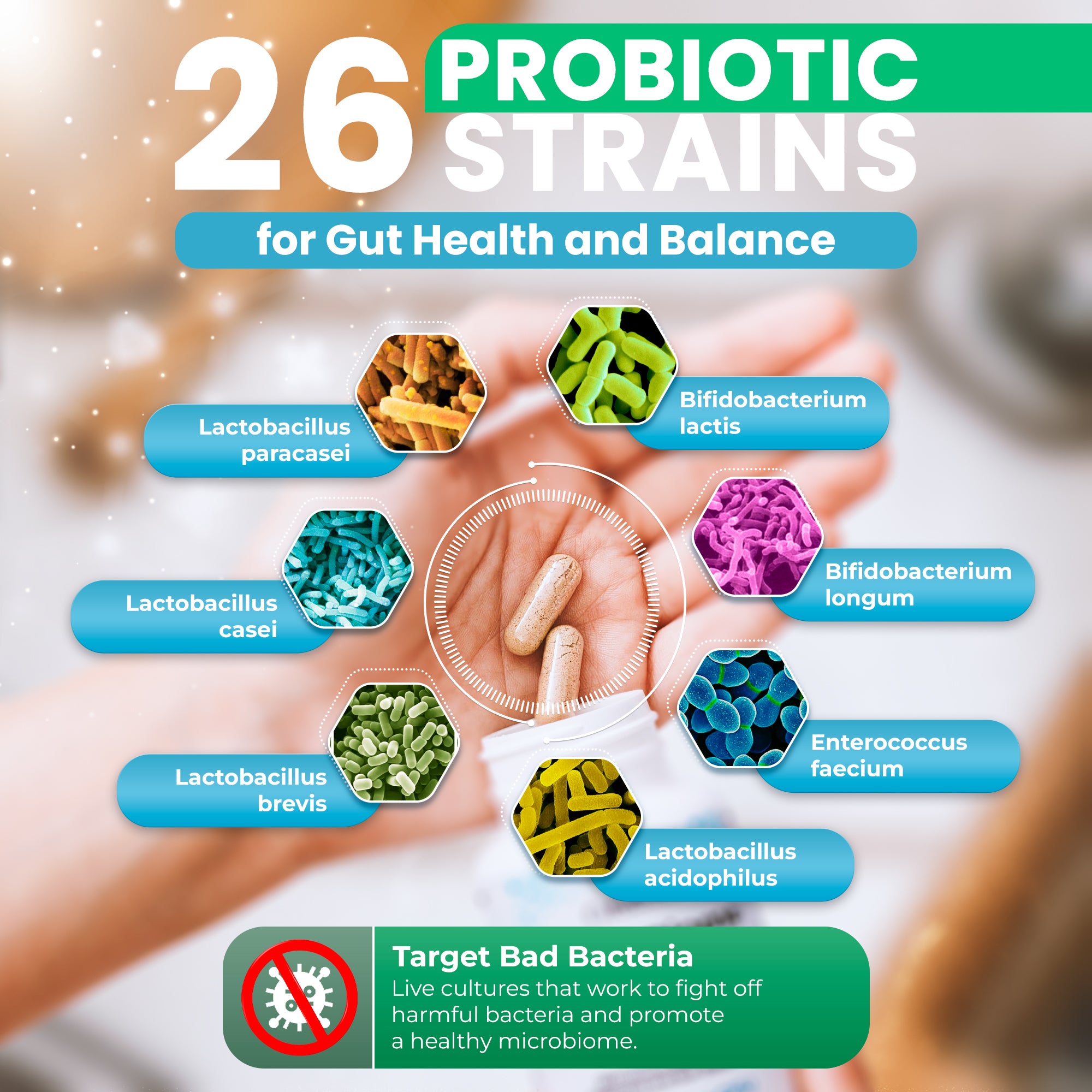
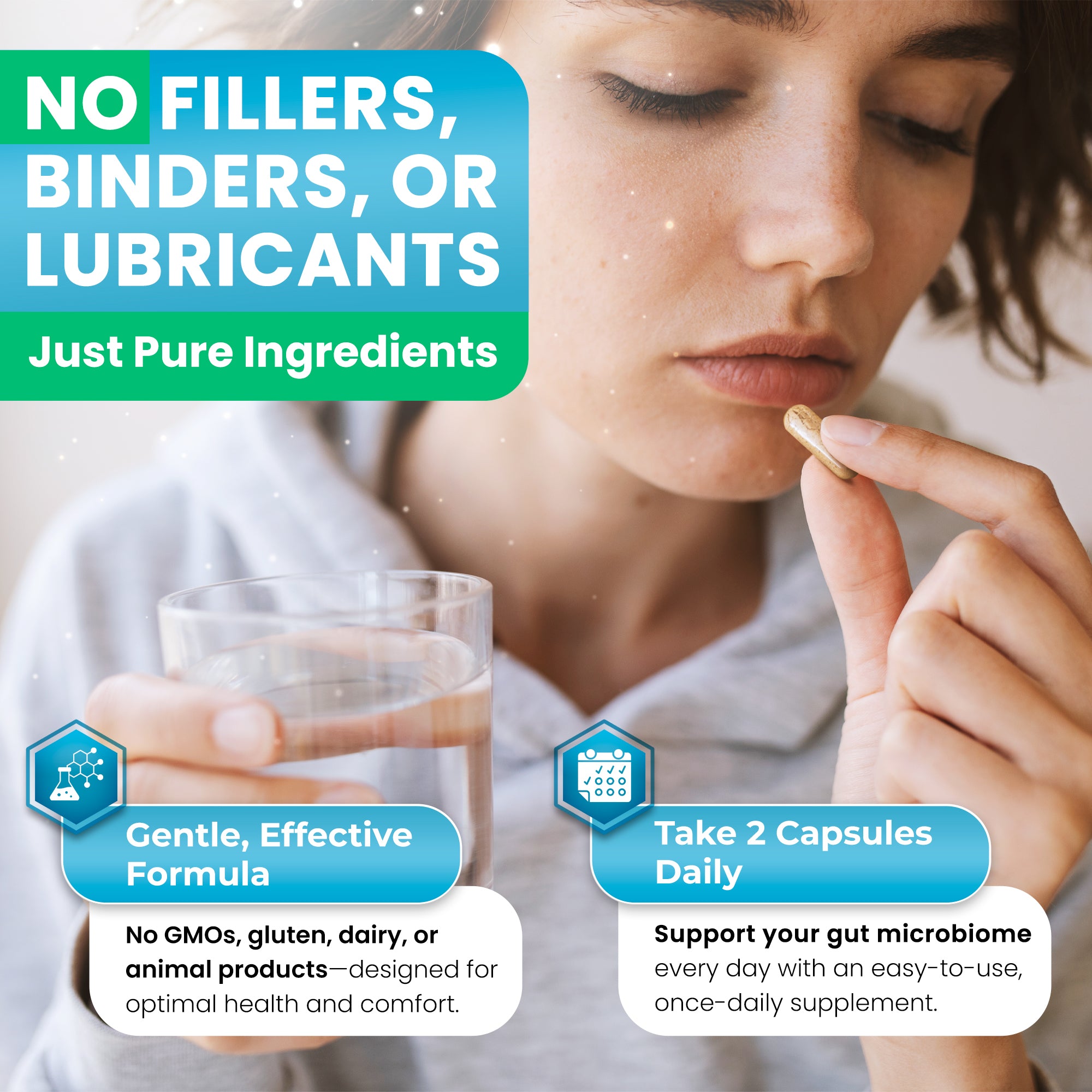
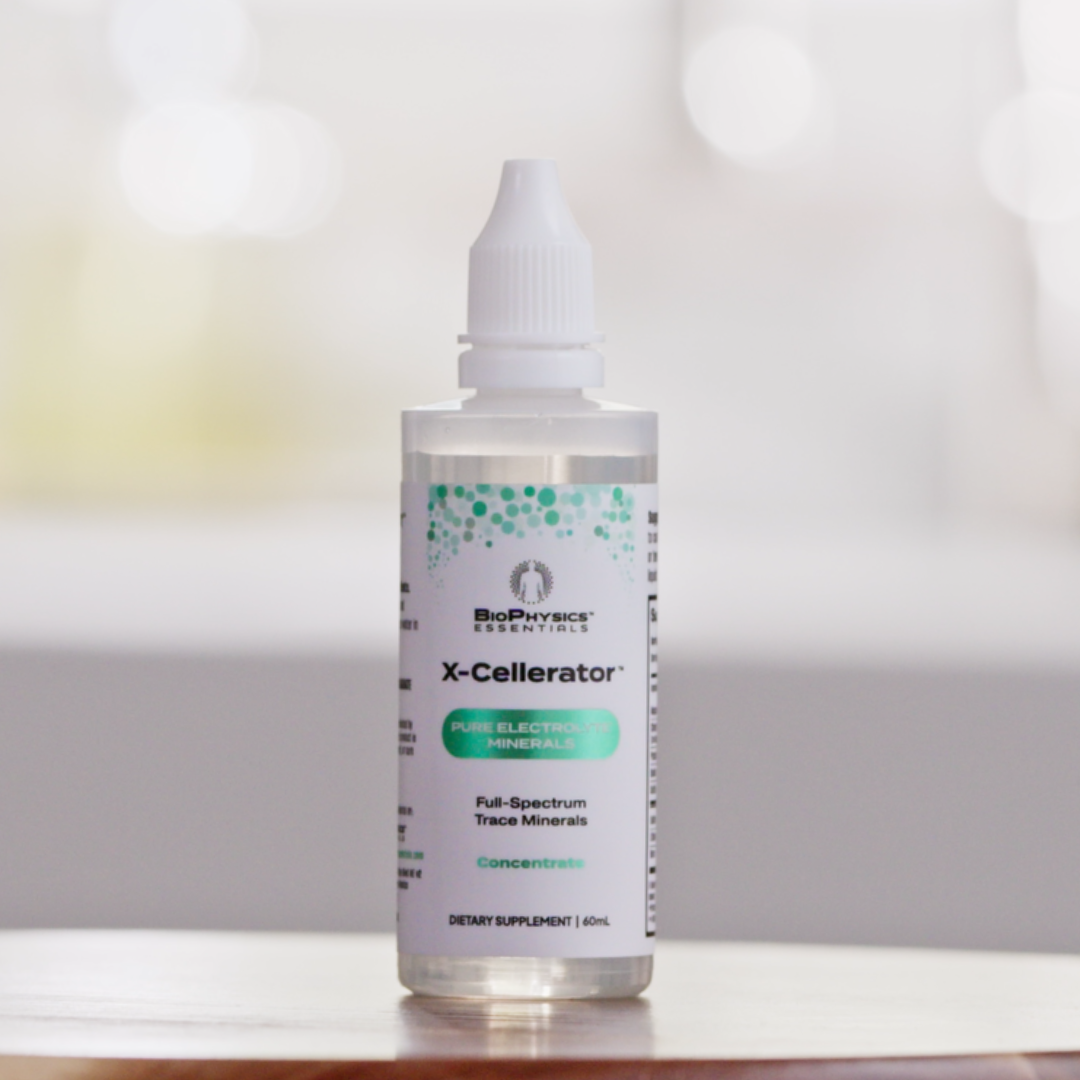
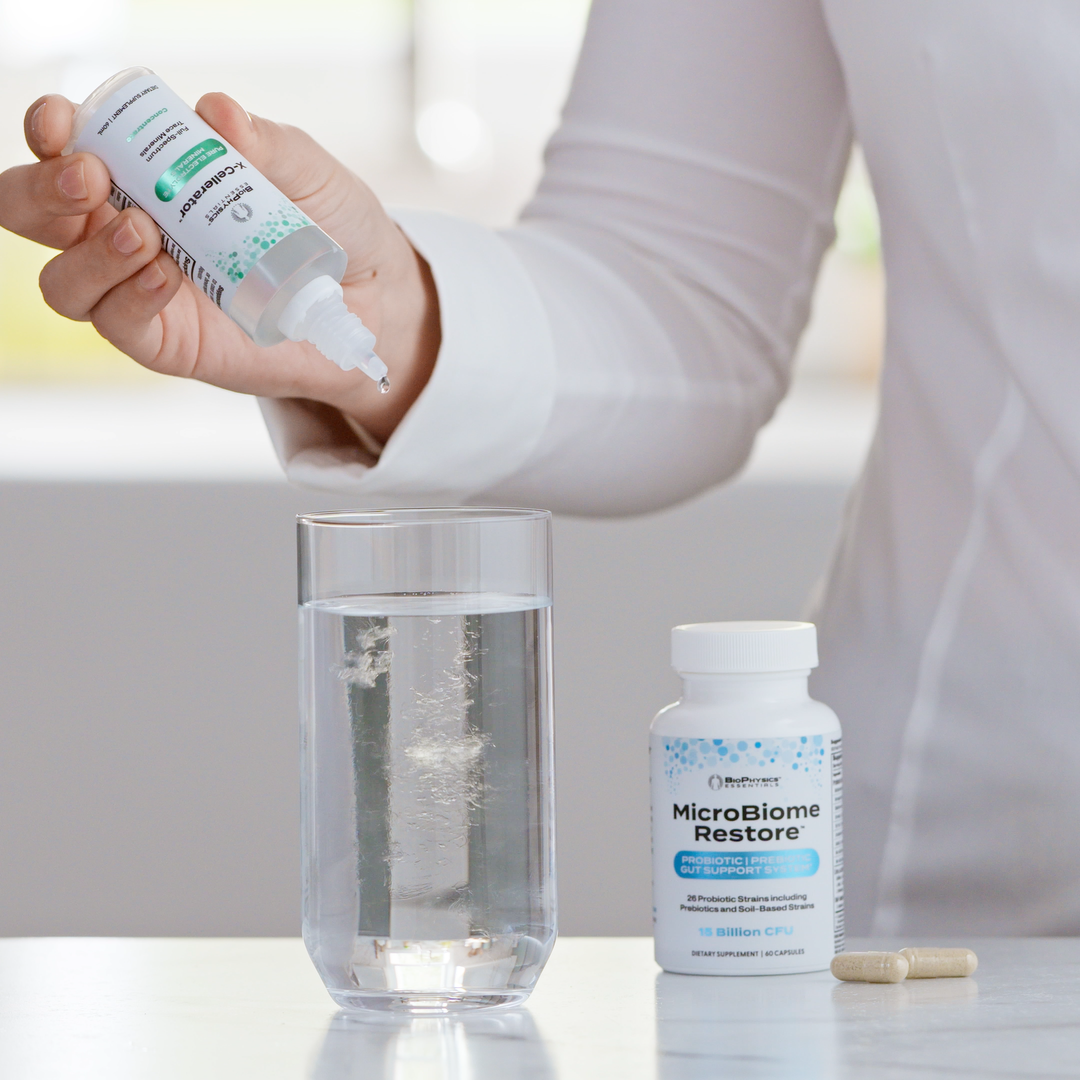


Share and get 15% off!
Simply share this product on one of the following social networks and you will unlock 15% off!